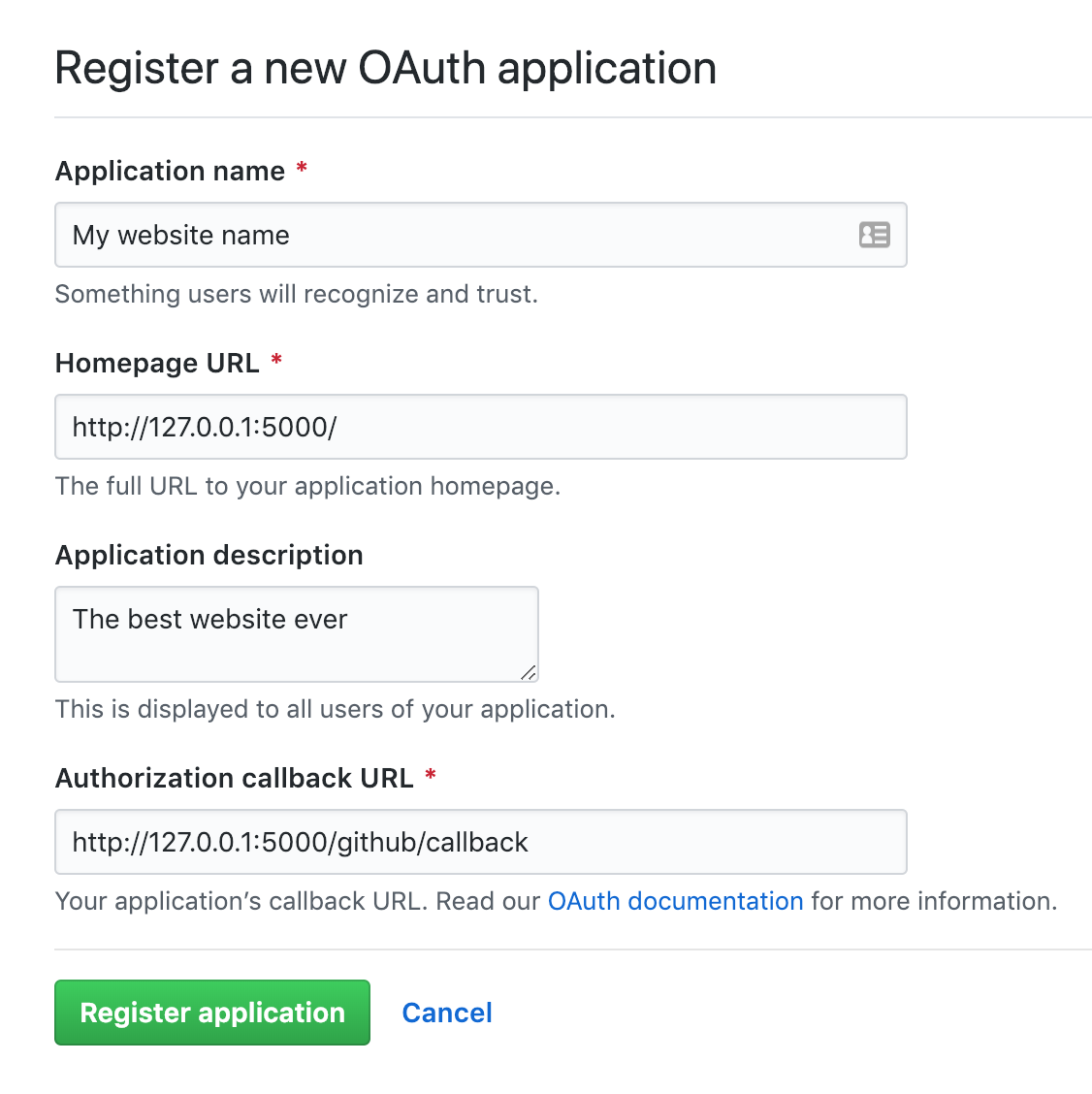Flask==1.0.2
gunicorn==19.9.0
requests_oauthlib
As you can see, you'll need to add a new library called requests_oauthlib. This library will help you connect to
GitHub to get login authorization.
You will need to use your GitHub ID and a GitHub secret key in your app. You must not add this ID and key directly in your app, because when you'll push your code to GitHub (or some other Git provider), everyone will be able to see your code and the secret key inside. As the name implies, secret key must be kept secret!
So instead you'll put your secret key in an environment variable (or "env var" for short). Currently, of the PaaS hosting services that we use, only Heroku and Azure support adding env vars. Google App Engine unfortunately doesn't (you can store env vars in Datastore or Firestore instead, but let's keep it simple). So don't use GAE for this example. Use either Heroku.
First create a .gitignore file and add this content in:
*.pyc
db.json
secrets.py
Then create a secrets.py file with the following contents:
# this file MUST be in .gitignore
# do not upload it to GitHub!
# if you upload it to GitHub, someone can steal your GitHub ID and secret!
import os
os.environ["GITHUB_CLIENT_ID"] = ""
os.environ["GITHUB_CLIENT_SECRET"] = ""
os.environ['OAUTHLIB_INSECURE_TRANSPORT'] = "1"
You will get the GitHub Client ID and Client Secret in the next step.
Go to your GitHub account, find Settings, click on Developer settings and then on New OAuth App.
Or just click on this link: https:/settings/applications/new
Fill out the form:
For the URLs add these temporary links for now:
- Homepage URL:
http://127.0.0.1:5000/ - Callback URL:
http://127.0.0.1:5000/github/callback
But when you'll deploy your app on, for example, Heroku, you'll need to replace http://127.0.0.1:5000 with the Heroku
app URL (https://your-app-id.herokuapp.com).
Click on Register application and you will see your Client ID and Client Secret.
Copy the client ID and secret and add it into your secrets.py file. This will help you use env vars on localhost.
Also create the env vars on Heroku. On Heroku you can find env vars under Settings/Config Vars.
